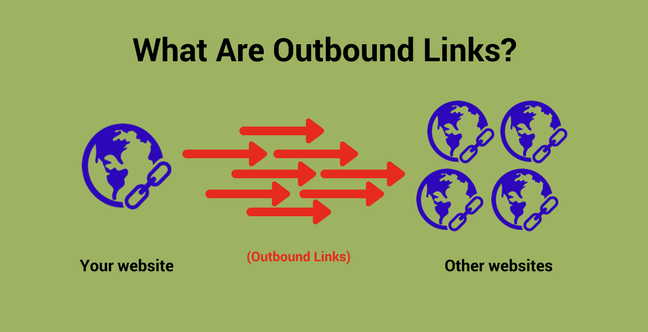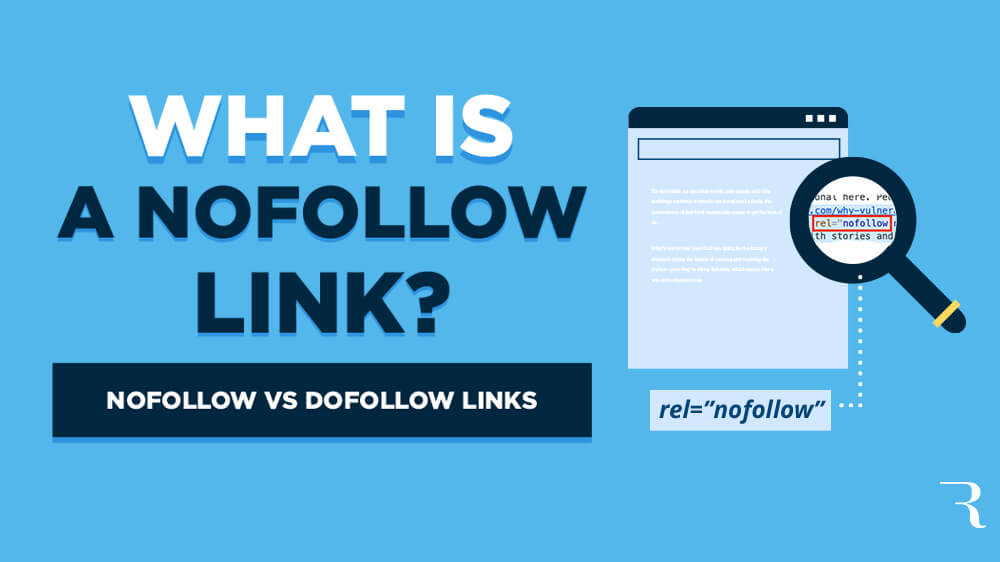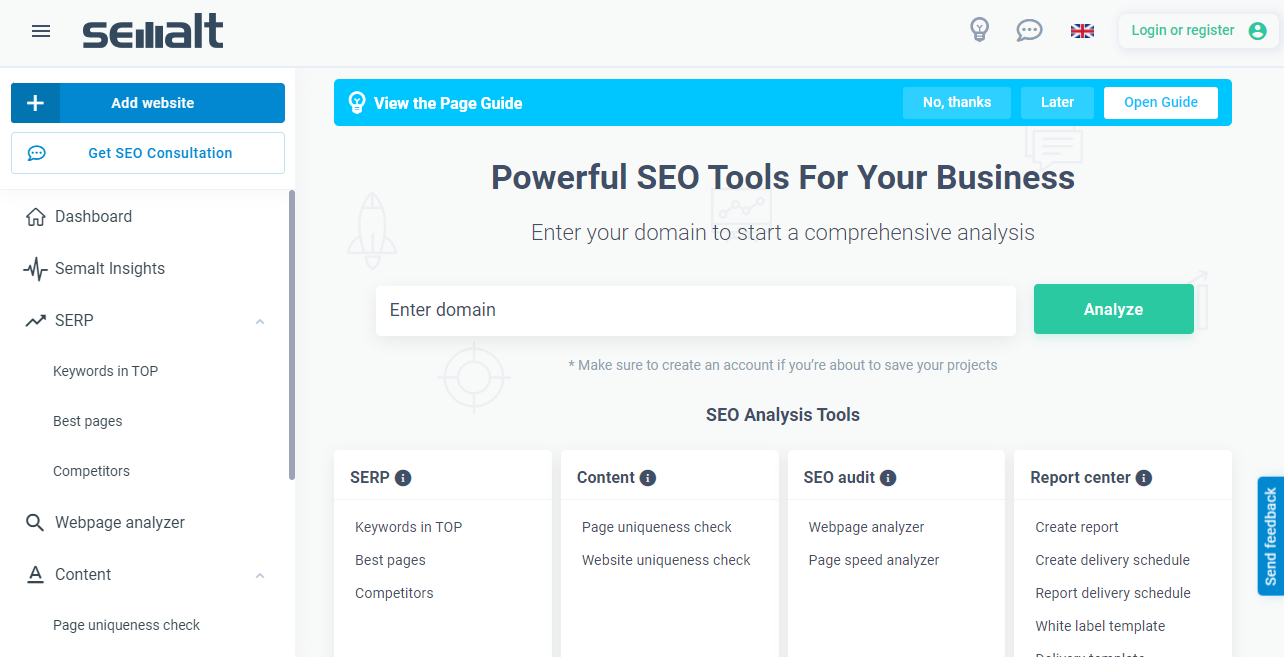Outbound Links. What Do They Mean For SEO Website Promotion? The Semalt Answer

Our clients often ask if outbound links from their sites matter in terms of website promotion. Many SEO experts recommend removing all external links, questioning their usefulness. But I wanted to understand what is really happening and help people understand the nuances and benefits of using outbound links. So do outbound links matter?
The short answer is yes. And now let's figure out how to use outbound links on the site to get the most out of promoting it.
What Do We Mean By Outgoing (Outbound) Links?
Outbound links take your users to other sites on the internet. They are commonly used as links to fact-checking sources, related sources, social networks, and so on.
This is the opposite of internal links (linking), which take your visitors to other pages on your site.
Two Types Of Outbound Links: Nofollow And Dofollow
You should remember that there are two types of outbound links that are defined by the rel="nofollow" attribute - its presence or absence in the link code tells crawlers what to do with the link.
- Nofollow - tells search bots not to follow the link and thus pass on the weight of your page.
- Dofollow - that is, open links allow robots to follow them and transfer the weight of your site to the landing page.
If you openly direct people to another site, then by doing so you give it a kind of vote of confidence, increasing its authority in the eyes of search engines. And if you use a nofollow link, then you block the transfer of weight through this link.
Nofollow links can help you avoid some of the penalties from search engines, let's take a closer look.
When Should You Use Nofollow Links?

Nofollow links should make up a small portion of your outbound links. Since Nofollow in the eyes of the search engine essentially breaks the "logical chain" between your site and the resource to which you send visitors. This can be useful in terms of some SEO ranking algorithms and general website promotion etiquette. So there are cases when you need to use nofollow.
Paid links
If people buy links on your site, Google may penalize you for this practice. Penalties can cause significant damage to the rating. Therefore, it is better to wrap such links in nofollow. Another question is whether they will buy from you after that... In this situation, we can only recommend selling links from your site strictly on the subject of your resource.
Links in the comments
Always make sure (or ask your webmaster to make sure) that links in comments are not indexed. Because spammers will move onto your site and post links en masse to dubious resources that may be recognised by search engines as fraudulent. This can lead to penalties against your site. Ideally, you should not allow links to be posted in comments on your site.
User Content or Guest Posts
If your site allows documents to be published by guests on your site or by unverified third-party authors, the best option is to assign the Nofollow attribute to the links to these documents. This is excellent insurance against dubious links to controversial or even offensive material.
Other cases
Basically, use nofollow any time you suspect there might be a problem for readers or indexing algorithms when you link to another site.
What about open links?
In most cases, they are an invaluable help to your SEO website promotion. Unless, of course, you filter out irrelevant ones with nofollow. So what are the reasons not to wrap absolutely all outgoing links in nofollow?
Why Are Open Outbound Links Important?
There are several reasons for this. And here are the most important ones:
They Increase The Relevance And Authority Of The Information On Your Site.
Search engine algorithms can learn a lot about your site from who you link to and how. You can look at links as clues to the industry you are in, advice on how to solve problems, and the relevance of information.
If you link to a high authority page, you are building search engine confidence in your site, showing that you are a competent source in your industry, which will thus increase search engine confidence in your site.
They Improve Reputation
By using relevant links to high authority sources, you can increase your site's reputation. You kind of show the search engines that you are at one with the biggest authorities in your field.
It's also very common for people not to have time to find five different sources of information on various resources to get all the information they need, so providing them with links to the missing information will help you become an authoritative expert.
It Adds Value To Content
Quality content is what sets you apart from your competitors, and linking to other quality content provides an instant boost to the value of that information to your readers, and therefore to the opcode systems. People are much more likely to come back to read your blogs when they also get links to related material available online on that topic.
As more and more users return to your articles, you will see a significant increase in your site's search engine rankings.
It Encourages People To Link To You
Using outbound links will help you connect with other bloggers, journalists, industry websites and companies. Approval of their activities may encourage them to do the same in return. And the more other sites interact with and link to your content, the higher your pages will appear in search results. Being on the first page of results will in turn help more of your users find your business.
Clarification. By themselves, backlinks are not so good and are useful for getting direct traffic. Only a small percentage of people click on these links. But for the rankings you get from the search engines, those links are pretty solid.
So, Will Outbound Links Affect The SEO Of A Website?
Yes, positively and strongly. In fact, outbound links are one of the most important and universal sources of rankings, as search engines see them as an endorsement of your site if you are linking to authoritative sources in your field. The only thing you should not do is include keywords in your outbound links, this will certainly help other sites in their SEO, but may be too generous of you. It's better to use the text of the site's URL.
Tips For Proper Outbound Link Placement
Look for natural linking opportunities
First, don't try to insert an outgoing link no matter what. Do it naturally. If there is some related information on a third-party resource that you think will be useful to your readers, but is not the direct subject of a particular article, then put a link to a detailed discussion. Likewise, if you make a claim, back it up with citations to relevant sources. These kinds of natural links will help you keep your point of view relevant.
Use tools to find adjacent sites
If you want to find recipients for your backlinks, then you might want to consider using the Dedicated SEO Dashboard to get a series of results that Google thinks are relevant to your site.
Don't use automatic backlink exchanges
If Google detects a link farm on your site, it will severely punish you with penalties.
Make sure links open in new browser tabs
Since outbound links lead people to other sites, you must make sure that your user can return to your article. It's very annoying when you follow a link, and in the end, you can't find the article you started with.
Avoid too many outbound links
If you overdo it with outbound links, then you are distracting your reader from your article, and as a result, you risk that he will not return to your material. And if you inadvertently link to a spammy site, you could be downgraded in Google's SERPs.
Use only those links that will be useful to your reader. Illustrate the content of the link in the sentence from which the link was made, thus making it clear to the user what awaits him when the link is opened.
Strictly adhere to the quality of user links
If your links lead to reputable, authoritative resources and posts, then they can increase your authority. On the other hand, if the links lead to low-quality, spammy posts created by no one and not confirmed by anything, this can undermine the trust of your audience. To reiterate, do not allow strangers or bots to leave comments on your site. Implement manual moderation.
And lastly advice: Use outbound link checking tools like the DSD SEO Tool to make sure all your links are up to date and don't lead to pages that don't exist. Broken links will lower your rankings.
Outbound links will be worthless unless they are wrapped in high-quality original content. Outbound links are thus only good when inserted into interesting texts.
If you liked the article, share it on social networks, and suddenly someone else will like it))
